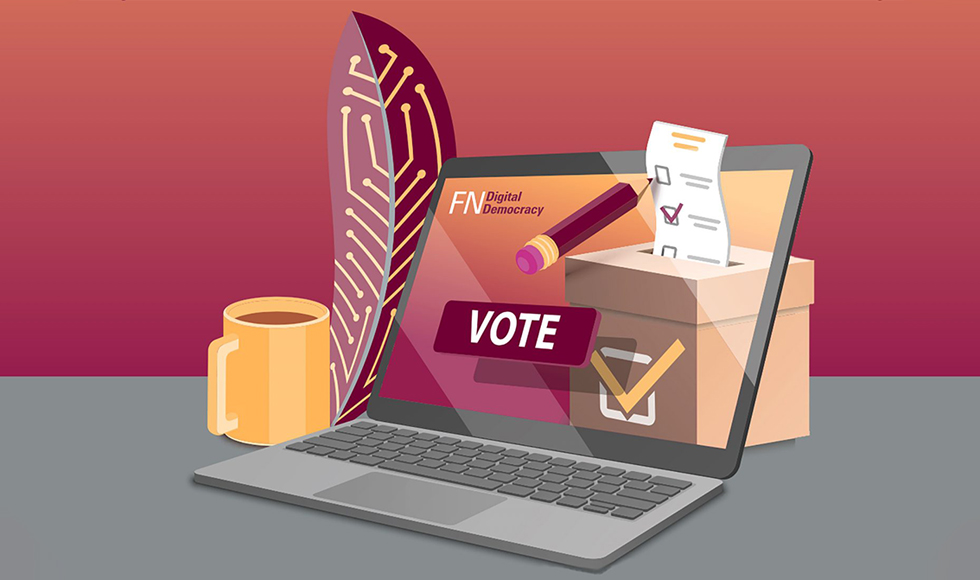New research shows online voting could be transformative for Indigenous communities

May 4, 2021
How would the introduction of online voting in Indigenous communities impact residents?
This is the question that Chelsea Gabel, Associate Professor in Indigenous Studies and Health Aging & Society at McMaster University and Nicole Goodman, Associate Professor of Political Science at Brock University, have sought to answer with their research.
Their report called “Indigenous Experiences with Online Voting” was released on May 3, 2021. The report and its recommendations are the culmination of eight years of research by the pair, as well as long-standing collaborations with Indigenous communities as part of the First Nations Digital Democracy Project.
The research directly involved communities, taking their guidance on research design, questions and project outcomes. Using this community-engaged research approach, Gabel and Goodman found that online voting is appealing to Indigenous communities as a way of enhancing participation, self-determination, and governance. It can also serve as a tool to improve voting accessibility and engagement for members living off-reserve.
Gabel, who is Métis from Rivers, Manitoba, said Indigenous communities played a significant role in the research. The report draws on the experiences of three First Nations: Tsuut’ina Nation, Wasauksing First Nation and Nipissing First Nation, and the community was involved at every stage of the process, including providing feedback on the draft report and its recommendations.
“This report is unique because it’s directed, driven and led by community,” she says. “Through our SSHRC-funded First Nations Digital Democracy project, we cultivated strong relationships with First Nations partners. It is the only project in the world that combines community engaged scholarship and technology to explore Indigenous experiences with online voting.”
The findings suggest online voting adoption enhances inclusiveness and the representation of voices in key community decision-making.
“The importance of this report and its recommendations has been magnified by the COVID-19 pandemic,” says Goodman. “Voting and elections have been affected in many communities and First Nations should be able to choose balloting options that work best for the health and well-being of their community. Our report speaks to online ballots as an alternative voting mode that governments could consider maintaining public health and continue with elections,” says Goodman.
The report offers eight key recommendations including the creation of a security framework for online voting implementation and the provision of additional research support from ISC/CIRNAC and Tri-Council Agencies for community-engaged research with Indigenous communities focusing on technology.
However, Gabel and Goodman say that the priority is to amend the Indian Band Election Regulations, Indian Referendum Regulations and First Nations Elections Act Regulations to allow for the use of alternative voting methods in First Nations elections and referendums.
“First Nations should have the opportunity to innovate their election processes to potentially better reach members,” says Gabel. “Given the government’s narrative of reconciliation and support for a nation-to-nation approach to working with Indigenous communities, there is a timely opportunity to reform both the Indian Act and the First Nations Election Act to give First Nations the autonomy to decide for themselves which voting methods work best for their community.”
From there, the technology also must be stabilized by working with community-owned service providers and undertaking activities to enhance Internet connectivity and digital literacy, and then to work with the Indigenous communities to implement other key steps in the report and promote community buy-in.
“There is an opportunity with these recommendations to more fully support First Nations in their voting and elections through funding and resources,” says Goodman.


